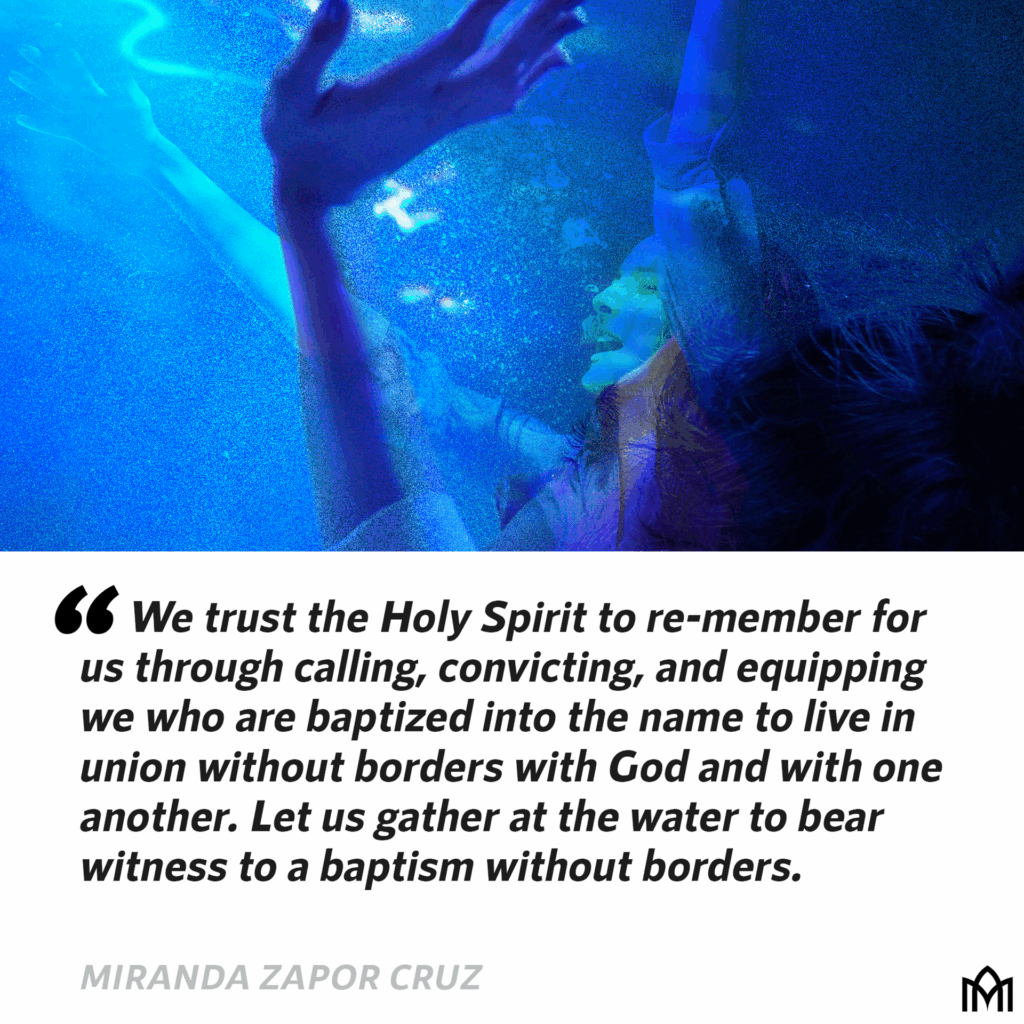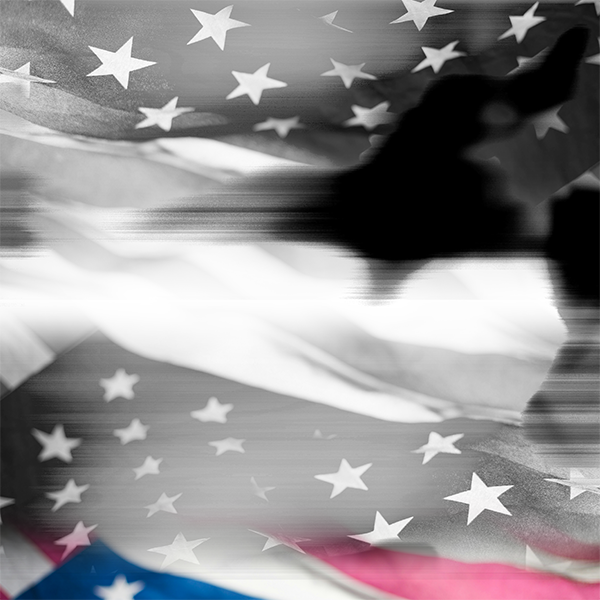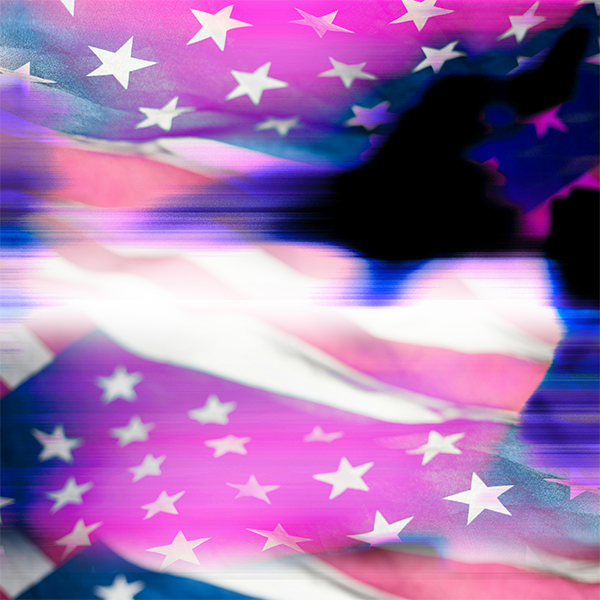Baptism Without Borders
I’m told I kicked off my tiny shoe when I was baptized. My parents made promises on my behalf and I received a Bible inscribed with my name, a gift from a church I would never know as my family moved soon after. I have no cognitive memory of receiving this sacrament. I know for some of my Christian sisters and brothers that fact makes the action a meaningless ritual, but let us agree to disagree on that point for a few minutes. The mystery of baptism must run deeper than cognition, whatever one’s theology of the act may be. While my memory falls short, the Holy Spirit re-members, makes real again the power of being sealed by Word and water. The power of baptism is more important now than ever, as Christians across national and cultural borders are arrayed for battle with words and fists and weapons of mutually-assured destruction.
Let us gather at the river to recover the mystery of our baptism.
Jesus instructed his disciples to “make disciples of all the nations, baptizing them into the name of the Father and of the Son and of the Holy Spirit” (Matthew 28:19). Jesus sends his followers out to carry an invitation across boundaries and calls the people groups of the earth to cross their borders to gather at the water. Upon entering the water, individual, cultural, and ethnic boundaries recede as people are brought into union with the triune God. You see, we aren’t baptized “in the name of” as if the officiant were merely acting as God’s representative (although he or she might be understood that way, too); rather, we are baptized “into the name of.” Into implies a movement from one place to another – from separated to inseparable, from ranked to equal. It is God’s own triune nature that defines what it means to be baptized into God’s name.
The Father, the Son, and the Holy Spirit are one God, undivided from one another and yet distinct. As bearers of God’s image, humans were created to reflect God’s nature by being likewise undivided-yet-distinct. Thus, at creation the man affirms the woman as bone of bone and flesh of flesh, and yet maintains her distinctness as woman. This difference is welcomed with awe and regarded as complementing their sameness. Sin violates God’s image, elevating distinctness over union and twisting difference into division. The difference that God intended for awe, sin-sick humanity saw as awful. Enmity, murder, and war were and continue to be the result of this devastating rejection of beauty embodied and mystery manifested in our human differences.
The power of baptism is more important now than ever, as Christians across national and cultural borders are arrayed for battle with words and fists and weapons of mutually-assured destruction. Share on X
But we are called to the cleansing water that restores the image of God. As we participate in the life, death, and resurrection of Jesus Christ that the water symbolizes, we are brought into union with the Father, Son, and Holy Spirit so that we can become like God in whom there is both inseparable union and undeniable difference. One God in three persons; One humanity in many tribes and tongues and nations.
Whatever we believe about the details of baptism–believer or baby, sprinkling or submerging–we must believe that being baptized into the name of the Father and of the Son and of the Holy Spirit calls and empowers us to become images of the triune God. Wherever we participate in or make excuses for physical or verbal violence against brothers and sisters across cultural and national borders, we violate our baptismal covenant. When we attempt to justify material or psychological harm on the grounds of self-protection, we effectively reject the sacrificial love of Christ in his death and resurrection. We enter the water, but refuse to be cleansed. We leave the water only to return to the boundary lands from which we came, refusing to believe that the borders are no more.
Baptism into the name is more than a profession of faith; it is a transformation that makes us a new creation. Our minds are newly enabled to recognize the sin in ourselves and within our borders, especially when that sin is rooted in a refusal to acknowledge that we are primarily bone of bone and flesh of flesh and only secondarily differentiated by sex, tribe, tongue, or nation. As people die in bomb shelters and detention centers, our baptism into the name of the triune God demands that we see ourselves as inseparable from their suffering. As people across borders cower in fear while shielding their children from words and fists, our baptism into the name demands that we embody our union through sacrificial love. As politicians and power-players define difference as a threat, our baptism into the name demands that we welcome difference with awe and protect those whose differences put them at risk of death, dehumanization, or devaluation.
I don’t remember being baptized, and you might not either. I didn’t understand what baptism was, but who among us truly understood what God’s Spirit did through water and the Word? We trust the Holy Spirit to re-member for us through calling, convicting, and equipping we who are baptized into the name to live in union without borders with God and with one another.
Let us gather at the water to bear witness to a baptism without borders.
///
As politicians and power-players define difference as a threat, our baptism into the name demands that we welcome difference with awe and protect those whose differences put them at risk of death, dehumanization, or devaluation. Share on X




